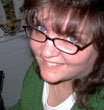Welcome back, fantasy lovers! We had a nice break, but I'm looking forward to getting back into our discussion on writing fantasy.
I've been learning about The Hero's Journey, which all stories follow to some extent, but in fantasy it's necessary to pay closer attention to it. What IS the Hero's Journey? According to the book, The Writer's Journey by Christopher Vogler, the Hero's Journey contains "a few common structural elements found universally in myths, fairy tales, dreams and movies." He begins the book talking about mapping the journey in Three Acts.
Act One begins with the Ordinary World. Vogler says it's necessary to show your hero in normal life so when the Call to Adventure comes and the quest begins, you can "create a vivid contrast with the strange new world he (the hero) is about to enter." It's also needed to establish who the hero is and begin the character arc.
That makes perfect sense to me. The reader needs to know who the hero is without the new situation. Writers need to establish character and personality. We need to create a sense of caring what happens to the hero. Otherwise, why would the reader want to read on?
So, let's talk a bit about the Ordinary World. How do we set it up? How long should we stay there? How can we make it interesting? How much description should we use? I look forward to your comments.
Don't Plant Trees!
12 years ago







Firstly, we must remember that "his" ordinary world only needs to be ordinary to him, not necessarily to the reader. Whatever things that happen on a day to day basis that we may not understand, he has seen them, experienced them, and made them happen since he was young. Therefore, he cannot be surprised when he sees a bobcat the size of a bulldozer in his backyard if that is something commonplace. He expects this to happen, or a least knows that this is a possibilty, and is not astonished. Lay a groundwork, describe what he knows and we do not. Have fun with detail, but as always, don't overdo it! :)
ReplyDeleteI think my characters are in their ordinary world for about the first two chapters. It takes about that long to describe the situation and get them moving. But the danger they face is introduced - or at least hinted at - in the first scene.
ReplyDeleteIn my WIP (now at 100K yippee) The first chapter starts off in the heat of battle, which is normal for my hero. The second chapter is a flash back which cements the fact that she has live through battles before.
ReplyDeleteBoth chapters end with loved ones dyeing. In the third chapter the story really begins, how is she going to journey through this loss and become the hero she need to be.
In fantasy, I think readers allow us more time to set the story up. It depends on the age group you're writing for, though. Most teens want to get to the action right away. Still, we have to establish the normal world for the hero (like Amanda said.) This can be as short as a sentence or as long as a chapter.
ReplyDeleteBut the story should begin in the beginning. Doug mentioned his story didn't begin until the third chapter. A reader may stick with you, but an editor will not be that patient.
Doug also mentioned flashback, but we'll talk about that another time.
When I began my WIP, my normal world was told in one sentence. It was okay. But as I worked with my writing partner, I learned I needed more, so my normal world is now a few paragraphs. I hint at trouble after that, but the real problem isn't revealed until the middle of chapter one. And it builds from there, as the heroine learns more and more about her destiny.
It comes down to this: what does the story require? As long as we use beautiful language with strong verbs and nouns and stive to keep our readers attention, they will enjoy the normal world and be ready to go along on the adventure with the hero.
Danielle
ReplyDeleteI must confess that I am one of those teens that like the action NOW! If anyone is writing for teens, I would suggest that if you set up the ordinary world early on, that it would be interesting and that we see an obvious problem that is ultimately connected to how they become a hero.
Another way is like in "Hero, Second Class" where he had a heart-pumping prologue, then an introduction into his world that was a bit less exciting.
I also like how you did it, Mrs. Halter. You showed her unique abilities and lifestyle right off -- not the mention that in your case, the prologue was also intriguing.
In my books I need to work on establishing my world a bit more completely :p I tend to skip to the excitement since that's what I like to read.